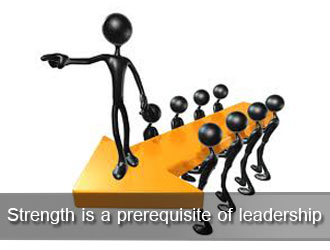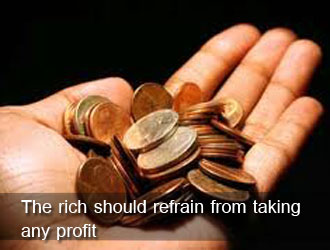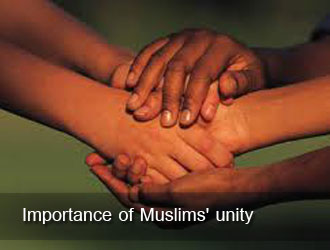- Prophetic Hadith / Explanation of Prophetic Hadith
- /
- Al Ahmadi Mosque's Lectures
The central idea of the lesson:
{Verily, there has come unto you a Messenger (Muhammad ) from amongst yourselves (i.e. whom you know well). It grieves him that you should receive any injury or difficulty. He (Muhammad) is anxious over you (to be rightly guided, to repent to Allah, and beg Him to pardon and forgive your sins, in order that you may enter Paradise and be saved from the punishment of the Hell-fire), for the believers (he is) full of pity, kind, and merciful}
The core of the lesson today is about the care of the Prophet, may Allah have peace and blessings upon him, for his nation. He is the most merciful man ever, so he cares about us more than we do, and he has mercy on us more than we do.The Prophet's advice to Abu Dharr:
Dear brother, there are many sound As7adeth that manifest the concern of the Prophet (PBUH) for his nation:Abu Dharr (may Allah be pleased with him) narrated that The Messenger of Allah (peace be upon him) said:
"Abu Dharr, I see that you are weak, and I love for you the same things that I love for myself. Therefore, never become an amir [a leader], not even over two persons, and never manage the property of an orphan."
Pay attention to what the Prophet (PBUH) said,"I see that you are weak,"
The strong resolute person is the one who knows exactly what he should do. He is the one who puts his ideas into words and his words into actions. His character is strong enough, so he can apply Allah's orders in his daily life, whereas the weak one who is satisfied with his weakness can never do his orders, justify the truth, or face the powerful. Such a person cannot be the Muslim leader.
puts his ideas into words and his words into actions. His character is strong enough, so he can apply Allah's orders in his daily life, whereas the weak one who is satisfied with his weakness can never do his orders, justify the truth, or face the powerful. Such a person cannot be the Muslim leader.
"Abu Dharr, I see that you are weak, and I love for you the same things that I love for myself. Therefore, never become an amir [a leader], not even over two persons, and never manage the property of an orphan."
Our master Omar Ibn al Khatab (may Allah be pleased with him) was told that, "people fear your great strength."He cried a lot, then said, "By Allah aba Dharr if they had known the mercy I have in my heart, they would have taken my gown, but my position forces me to be like this."If someone was responsible for some people, he should be strong and determined.
Our master Omar ibn al Khatab, may Allah be pleased with him, tested one of the rulers. He asked him, "What will you of one of your people steals something?. He said, "I will cut off his hand." Then Omar said, "If one of your people comes to me hungry or unemployed, I will cut off yours. Almighty Allah appointed us leaders to cover the Awrat (the intimate parts) of people, to provide them with crafts and to satisfy their needs. If we guarantee them all these things, they will be grateful to us. These hands were created to work. Therefore, if they do not find jobs through which they obey Allah, they will look for jobs that let them disobey Allah. Let them be busy with obeying Allah, otherwise they will make you busy with their sins." hrough
This means that you should never wish to be a leader, because a leader will be asked severely; was he just or unjust? Did he speak the truth? Did he favor his relatives or he was just in their dealings?
"Abu Dharr, I see that you are weak, and I love for you the same things that I love for myself. Therefore, never become an amir [a leader], not even over two persons, and never manage the property of an orphan."
"He who was a ruler over ten people and never gave them advice, has betrayed Allah and his messenger.")
Juristic rulings about the orphan's money:
"And never manage the property of an orphan."
The Fuqaha’a said, "If the orphan has wealth, you can invest it. However, if you are rich it is better for you to invest the wealth on a reasonable basis." In other words, if you invest the money of the orphan, you should refrain from taking the profits at all. Yet, if you are poor then you may consume some on a reasonable basis. If you invest their money, you may take payment equal to that of anyone else doing a similar job. Which is the lesser amount in this case?
better for you to invest the wealth on a reasonable basis." In other words, if you invest the money of the orphan, you should refrain from taking the profits at all. Yet, if you are poor then you may consume some on a reasonable basis. If you invest their money, you may take payment equal to that of anyone else doing a similar job. Which is the lesser amount in this case?
{But if he is poor, let him have for himself what is just and reasonable (according to his work).}
Listen to what business men do; some of them buy the best seller goods by their own capital, but when it comes to the capital of the orphan they pay it for goods that might not be the best seller. They have doubts about the demand of certain kinds of good, so they pay for it the capital of the orphan."Use his money the way you use yours."
Don't use the orphan's money to test the market. Don't use it to see which goods are best seller and which are not. You should use his money to pay it for the best seller goods and the one that have huge profits.
The above mentioned rulings in brief:
"And do not take care of the property of an orphan."
We have four rulings: 1- If you are rich, you should refrain from touching that wealth at all.
1- If you are rich, you should refrain from touching that wealth at all. 2- If you are poor you may consume some on a reasonable basis.
3- If you invest his money, you either take payment equal to that of anyone else doing a similar job or as much as you need.
4- You should take whichever the lesser amount.
Let us assume that the profits are about one hundred pounds, the deal is fifty-fifty. I can take fifty, but I need twenty then I take twenty. If we gain ten thousand pounds, I can take five. Yet, if I need twenty, I take five. I either take payment equal to that of anyone else doing a similar job or as much as I need. I take whichever the lesser amount.. I should care for his money the way I care for mine. Thus, I use it to buy the best goods; the ones that you are 100% sure of their profits. This is exactly what the Prophet (PBUH) meant when he said,
"Abu Dharr, I see that you are weak, and I love for you the same things that I love for myself. Therefore, never become an amir [a leader], not even over two persons, and never manage the property of an orphan."
If you are used to put your profits immediately in your pocket without writing down any accurate accounts, you should never manage the money of an orphan. Otherwise, you have to be prepared to a precise and difficult reckoning in the Hereafter. However, you will never think of wasting the money of an orphan if your accounts are always accurate (the profits and the loss), your stocktaking is regular and the list of all the goods you have is always ready for checking. You should always write down everything (the profits and the loss) if you have partners. You should even pay the price of a cup of fresh juice if offered to your friend, who is not your partner. Yet, you are not obliged to do so if you are the only owner of your business. Here is the saying of the Prophet,
"Abu Dharr, I see that you are weak, and I love for you the same things that I love for myself. Therefore, never become an amir [a leader], not even over two persons, and never manage the property of an orphan."
You may say "he is responsible for something" and feel how great this word is, but beware of its meaning. It means that you will be asked about everything; why did you do that? Why did not you do that? Why did you give? Why did you abstain from giving? Why did you get angry? Why were you satisfied? Why did you keep in touch with those? Why did you break from those? Etc.That is what the prophet forbade his nation from
Ibn abass (may Allah be pleased with him) narrated that the prophet (PBUH) said,"Do not become infidels (kafir) after me by cutting the throats of one another."
What the Prophet (PBUH) meant by the word infidels (kafir) is getting back to the status of enmity, hatred, hostility, disputes, fighting and grudge between Muslims, let alone cutting the throats of one another.. Where did the Prophet take this meaning from? He took it from the following noble ayah,{ And how would you disbelieve, while unto you are reauthord the Verses of Allah, and among you is His Messenger (Muhammad}
{And how would you disbelieve, while unto you are reauthord the Verses of Allah, and among you is His Messenger (Muhammad}
Disbelievers are those who arouse hostility and conflicts between believers. They are people who divide the Muslim nation into sects.{But they (men) have broken their religion among them into sects, each group rejoicing in its belief.}
Almighty Allah and the Prophet, may Allah have peace and blessings upon him, referred to those who have their glories by destroying sh3er, as disbelievers.. As Believers you should unify the Muslims and try to finish all the conflicts between them and make them reconcile with each other.That is what aba Dharr said:
Abu Dharr (may Allah be pleased with him) narrated that The Messenger of Allah (peace and blessing of Allah be upon him) said,
"I can see what you do not see, and I can hear what you do not hear."
That is the unique person who sees what other don't see and hear what other don't hear. His way of thinking is totally different from that of the sh3er. His fears and wishes are not similar to those of other people. The believer is equal to one thousand of normal people; he sees into things in a distinctive manner, and his privileges enable him to be distinguished and unique.Why does he see things differently? Some people earn ill gotten money and become delighted and happy for that, but the believer feels guilty and will suffer if he thinks of earning money illegally. Disbelievers enjoy the material pleasures and getting themselves pleased on the expense of other's misery, while the believer, enjoy being close to Allah by doing what is permissible,
{That which is left by Allah for you (after giving the rights of the people) is better for you}
"I can see what you do not see, and I can hear what you do not hear."
I feel what you don't feelThis means that when you are believer, then you are a unique person., You have your own vision, feelings, ambitions, aims, means, fears and hopes which are distinguished from those of other people. If you aren't special then you are not a believer. Special means that your individuality can be noticed in your vision, comprehension, ambitions, aims, means, values, motives and principles
Reflect upon these As7adeth:
"Indeed the sky groans (the large no.s of angels in the sky make it heavy so that it groans) and  it has a right to do so. There is not an area equal to that of four fingers, except that an angel is prostrating to Allah therein. By Allah! If you knew what I know you would laugh little and weep much."
it has a right to do so. There is not an area equal to that of four fingers, except that an angel is prostrating to Allah therein. By Allah! If you knew what I know you would laugh little and weep much."
"Allah, verily a fed and elegant ownself in the worldly life would definitely be hungry and naked on the Day of Resurrection. O Allah, is not the one who glorifies himself is in fact humiliated, whereas the one who is humiliated is in fact honored by Allah. O Allah, is not a lust that longs for an hour causes a long-life sorrow."
The master Omar, may Allah be pleased with him, said, "I wonder at three; a person who is hopeful and expecting much from the worldly life although death may stop his life unexpectedly."(Generally, death comes between the age of sixty and seventy)
There are clots occur in the age of thirty. You can ask doctors to make sure of such information.. How will a person reflect over the worldly life? How can he laugh at the end? Death may put an end to your life unexpectedly
That is what they asked me to do:
A neighbor of mine has sent his twenty- two year old son to Al Hejaz to work. He died because of an accident he had there, so people asked me to tell his parents what happened.. I mentioned to them that the Prophet, may Allah have peace and blessings upon him, cried when his son Ibrahim died, so his companions said, "Are you crying?" then he (PBUH) replied,"The eyes weep and the heart grieves but we only say what pleases our lord and we sorrow, O Ibrahim, to part with you."
One of the sign of faith is to keep patient with the fate and the divine decree.We should work hard to know what the Prophet, PBUH, knew:
"Indeed the sky groans (the large no.s of angels in the sky make it heavy so that it groans) and it has a right to do so. There is not an area equal to that of four fingers, except that an angel is prostrating to Allâh therein. By Allâh! If you knew what I know you would laugh little and weep much."
Let me give you an example. A man driving his car downwards very fast in a road that ends with a sharp curve. He does not know that the brakes do not work, so he keeps driving quickly and he enjoys nature and the beautiful scenery out of the window of the car. If he had known that the brakes do not work, he would have been certain of his death.
"People are oblivious"
We should seek the knowledge of the prophet (PBUH) to get balanced;
"you would laugh little and weep much."
The Prophet (PBUH) wondered at three people: The Prophet, may Allah have peace and blessings be upon him said,"I wonder at three people; a person who is hopeful and expecting much from the worldly life, although death may stop his life unexpectedly,, a person who is oblivious although Allah knows everything about him and a person who laughs out loudly although he does not know whether Allah is pleased with him or not."
A person who laughs out loudly although he doesn't know whether Allah is content with him or not, is oblivious. Oblivion is one of the most dangerous diseases that the ownself suffer from.The prophet said;
"You would laugh little and weep much, and you would not enjoy your wives in bed. But rather you would come out onto the hills, supplicating and praying fervently to Allah, and I would have wished that I had been a tree was rooted out. "
What did Sufyan bin Abdullah ath-Thaqafi ask the Prophet (PBUH): Sufyan bin Abdullah ath-Thaqafi reported that he asked the messenger (PBUH),
"Messenger of Allah, tell me something about Islam that would leave me with no need of ask anyone else after you." He, may Allah have peace and blessings upon him said,
"Say: I have faith in Allah, then remain firm upon this."
(Verily, those who say: "Our Lord is Allah (Alone)," and then they Istaqamu, on them the angels will descend (at the time of their death) (saying): "Fear not, nor grieve! But receive the glad tidings of Paradise which you have been promised!)
"Then I asked, "What is that which you fear most for me? He pointed to his tongue and said, "This."
The tongue is used in backbiting, gossip, mockery, lying, kufr, deception, hypocrisy and flattery.Imam Al Ghazali referred to about seventeen diseases of the tongue. The Prophet (PBUH) said,
"The faith inside everyone can never stay straight unless his heart stays straight, and his heart can never stay straight unless his tongue stays straight."
Controlling the tongue is one of the signs of faith. The Prophet used to control his tongue.
The two traits that the prophet loved most in this hadith;
(("You have two traits that almighty Allah and his messenger love most" He asked, "What are they?" The Prophet (PBUH) said, "Silence and the nobility of character (the high moral standards."
The Prophet said 'silence,' because to keep silent means that you are safe. You should be careful when you speak, for you may say something that would be against you. If you keep silent, you will not be sorry for anything you may say,O man control your tongue,
or it bites you like a snake
How many people were killed by their tongues
although many heroes used to fear these tongues
That is what is narrated in books:
(Accusing a chaste woman of adultery tears down deeds of one hundred year)
Books narrate that a woman died and the hand of her washer stuck to her body while she was washing her. How would this woman have her hand released? It had been stuck for many hours and no one knew what should have been done. Should they cut the part of the dead flesh where the hand was stuck to? Should they cut the washer’s hand? People were confused. Imam Malik was the Imam of Dar al-Hijrah, and since it is said that, "No fatwah is accepted if Imam Malik is there," people decided to ask him to find them the solution. He said, "Perhaps the washer accused the dead woman secretly of committing adultery while she was washing her. Lash her eighty lashes." They did what he asked them to do, and at the lash eighty, the woman could release her hand.Don't involve in accusing a chaste woman of adultery:;
(Accusing a chaste woman of adultery tears down deeds of one hundred year)Sometimes you don't accuse a chaste woman of adultery by speaking, so you use the body language instead. For instance, you may use your shirt while accusing chaste woman of adultery. Never ever do that if you do not have the proof. You should keep silent as long as you have no
 evidence, otherwise you will be committing a deadly sin.
evidence, otherwise you will be committing a deadly sin. Sufyan bin Abdullah ath-Thaqafi reported that he asked,
"Messenger of Allah, tell me something about Islam that would leave me with no need of ask anyone else after you." He, may Allah have peace and blessings upon him said, "Say: I have faith in Allah, then remain firm upon this." Then I asked, "What is that which you fear most for me? He pointed to his tongue and said, "This."
Nowadays, most Muslims don't drink alcohol, don’t kill or commit adultery. However, they backbite, gossip, lie, interfere in other people’s business and falsely swear to Allah. These are all diseases caused by the tongue.The invocation that the prophet used to say repeatedly:
Anas ibn Malik narrated that the Prophet, peace and blessing of Allah be upon him, used to say; "O, Turner of the hearts, make my heart firm on Your religion." The Prophet Yusuf, may Allah have peace and blessings upon him, the son and the grand son of noble prophets said;{He said:"O my Lord! Prison is more to my liking than that to which they invite me. Unless You turn away their plot from me, I will feel inclined towards them and be one (of those who commit sin and deserve blame or those who do deeds) of the ignorants."}
He wasn't self-conceited for he knew that he was in need of Almighty Allah.That is what was reported in some As7adeth: The Prophet, peace and blessing of Allah be upon him, said; "Would you like me to explain the meaning of 'There is no might nor power except by the Will of Allah?' It means that you can never keep away from sins except by Allah's Might, nor can you worship Him except by His Power."
You cannot keep away from committing sins nor worship Him properly except by His Help. Therefore;
the summary of the noble Quran is in Surat Al-Fatiha
(And indeed, We have bestowed upon you seven of Al-Mathani (the seven repeatedly reauthord Verses), (i.e. Surat Al-Fatiha) and the Grand Qur'an.)
And the summary of surat Al-Fatiha is in Allah's saying; (You (Alone) we worship, and You (Alone) we ask for help (for each and everything).Many books were written about (You (Alone) we worship, and You (Alone) we ask for help (for each and everything) such as, Madarij As-Salikeen in the Ranks of "You (Alone) we worship, and You (Alone) we ask for help." In brief, the ayah means You Alone we worship, and You Alone we ask for help. Thus, The Prophet, may Allah have peace and blessings upon him, used to say repeatedly, "O, Turner of the hearts, make my heart firm on Your religion." We said, 'O Allah’s Messenger! We believed in you and in what you brought us. Are you afraid for us.' He said, Yes, for the hearts are between two of Allah’s Fingers, He changes them (as He wills)"
That is the state of the prophets and the believers;
When a man stands straight on the Path of Allah he should thank Him. Listen to what the father of the prophets, the noble Prophet Ibrahim (PBUH) said;{And (remember) when Ibrahim (Abraham) said: "O my Lord! Make this city (Makkah) one of peace and security, and keep me and my sons away from worshipping idols}
The Prophet Yusuf (PBUH) asked Allah saying, ;{Unless You turn away their plot from me, I will feel inclined towards them and be one (of those who commit sin and deserve blame or those who do deeds) of the ignorants."}
{And had We not made you stand firm, you would nearly have inclined to them a little.}
The Prophet Mohammad (PBUH) said;(You would nearly have inclined to them a little.}
(In that case, We would have made you taste a double portion (of punishment) in this life and a double portion (of punishment) after death.)
(And if he (Muhammad) had forged a false saying concerning Us (Allah),)
( We surely should have seized him by his right hand (or with power and might),
(And then certainly should have cut off his life artery (Aorta))
In one of the battles, the Prophet (PBUH) was asked, "O messenger of Allah, how about mutilating their bodies the way they did with your companions?" He replied,"No, I will never mutilate their bodies, for Allah will mutilate mine even though I am a messenger."
You see how much he fears Allah,"No, I will never mutilate their bodies, for Allah will mutilate mine even though I am a messenger."
Master Omar, may Allah be pleased with him, used to apply Allah’s Orders in his daily life;{It is not for a believer, man or woman, when Allah and His Messenger have decreed a matter that they should have any option in their decision}
Once the believer knows Allah and draws closer to Him, he will always work on applying Allah’s Orders in his daily life. That is what the Prophet (PBUH) feared the most for his nation;Omar Ibn a- Khatab my Allah be pleased with him narrated that the prophet (PBUH) said
"That which I fear the most for my ummah is every well spoken hypocrite."
The tongue is dangerous, because some hypocrites depend on their tongues to deceive Muslims. Those who attract Muslims’ attention when they say sweet words about Islam to cheat on them, have deviated from Allah’s path and they are hypocrites,
(And when you look at them, their bodies please you; and when they speak, you listen to their words. They are as blocks of wood propped up)
This fact justifies the fears of the Prophet, may Allah have peace and blessings upon him,"That which I fear the most for my ummah is every well spoken hypocrite."
Chose accurately who teaches you Islamic teachings:
"This knowledge (i.e. Hadith) is the Religion, so be careful from whom you take your religion.""This kind of knowledge is your religion, so a Muslim should double check his teachers of Islamic teachings."
"O Ibn Umar, take care of your religion! It is only your flesh and blood. Take from those who are upright, and do not take from those who have swerved."
This point is crucial. Suppose that you want to sell your house; you askethe broker and he tells you that you can sell it by eight million, do you sell it immediately? You will ask many brokers about the price of the house if you want to sell it. Also when you decide to buy a car, you will ask many experts, mechanics and specialist about it. Why will you do that? Because you are anxious over your money, and you don't want to waste it. How could your car be more important for you than your Deen?
Imam al Ghazali said; "O my ownself, if a doctor warns you from eating certain type of food that you love, you will definitely avoid eating that food. How could you see the doctor more honest that Allah? How infidel you are! How could you see the warnings of the doctor stronger than the ones of Allah? How ignorant you are!"
Conclusion:
The Prophet Muhammad (PBUH) said;"Teach and make things easy, do not make them difficult. If you get angry keep silent. If you get angry keep silent. If you get angry keep silent."
If you get angry you will make mistakes, you will say harsh words, you will insult other people, and you will hurt them. Take the advice of the Prophet (PBUH),"If you get angry keep silent."
You will not let evil control you if you keep silent. If you are angry, the minute you utter words things may get worse.When you get angry with your wife, you should keep silent. Once you start arguing with her, you may end up with divorce. You will find yourself asking Sheikhs to find you solutions,
"If you get angry keep silent."
If you could not, go out or change your position; if you were standing up, sit down. If you were sitting down, lie and vice versa. If you could not keep silent, perform the ritual ablution, and if you could not do that, wash up. The main thing is to keep silent, because you may say evil words that hurt the sh3er.It was repeated three times,
"If you get angry keep silent. If you get angry keep silent. If you get angry keep silent."
In another Hadith the Prophet, may Allah have peace and blessings upon him said,"Never get angry."

 The prophet (PBUH) then was very angry and he came out to them saying, "You do that although I am still among you."
The prophet (PBUH) then was very angry and he came out to them saying, "You do that although I am still among you."




